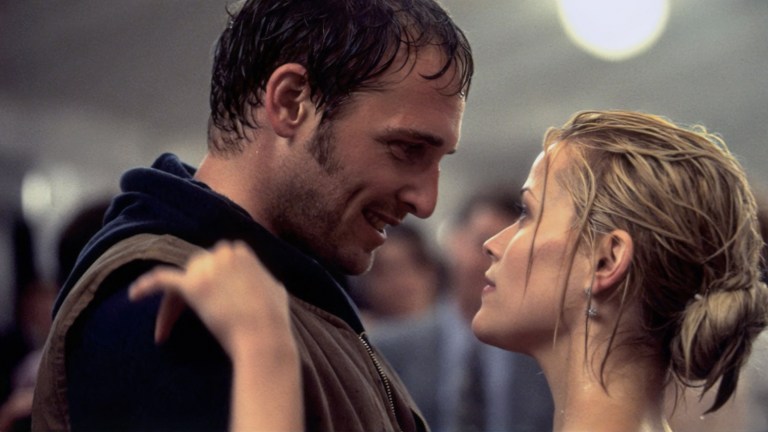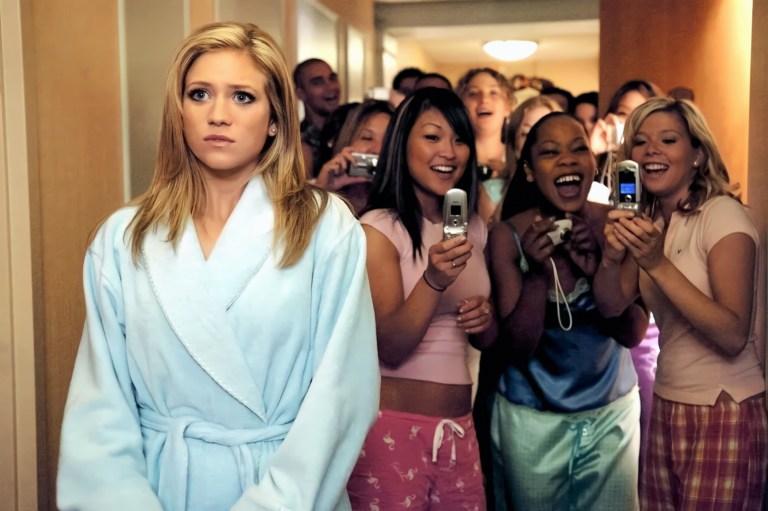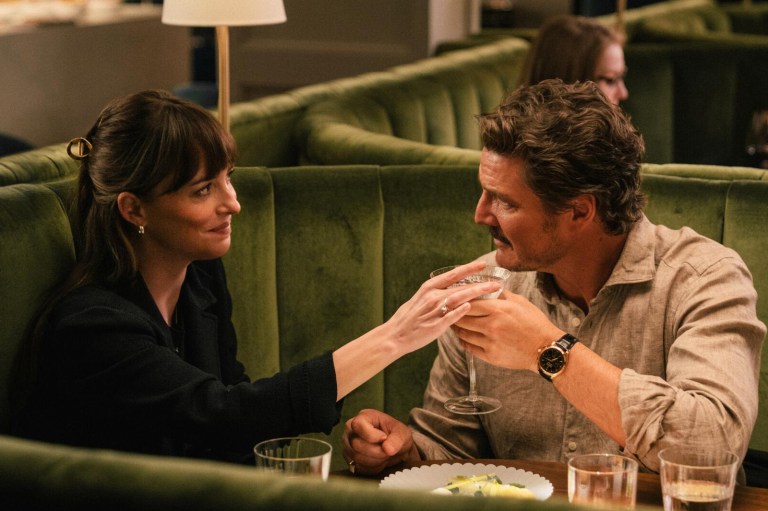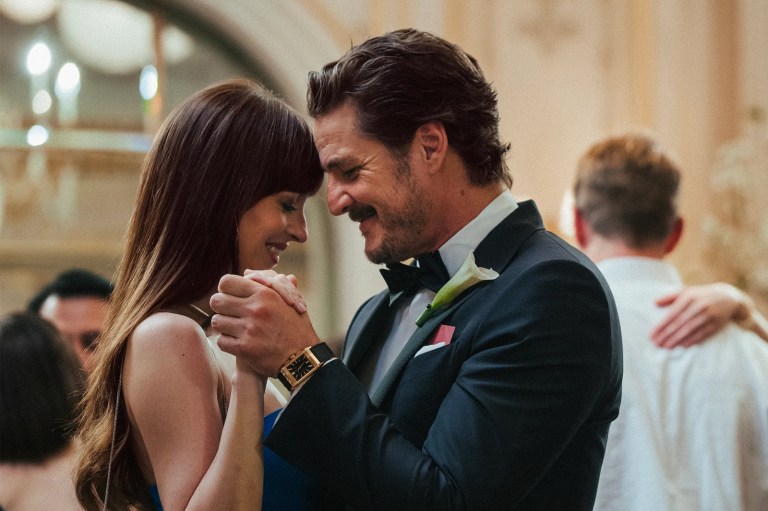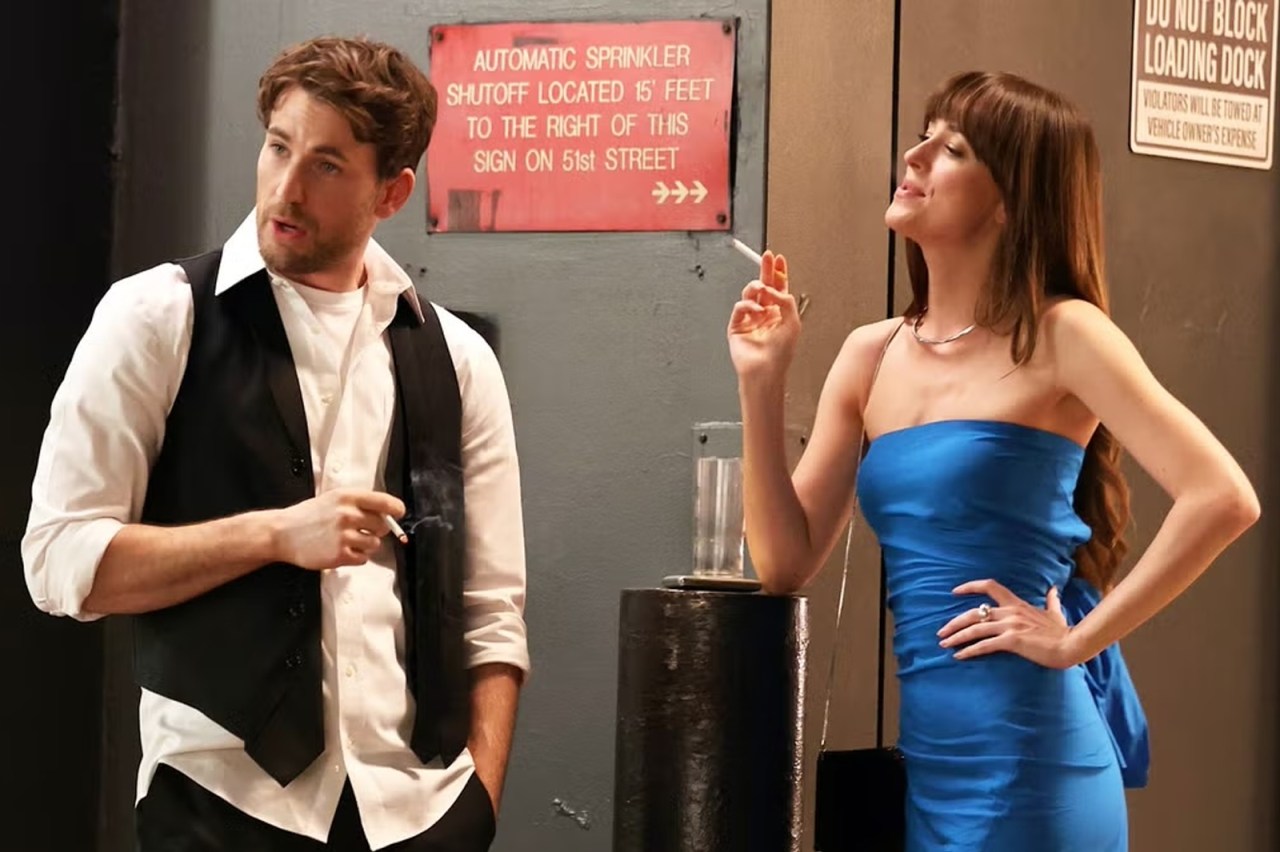
Why The ‘Broke But Better’ Romance Cliché In ‘Materialists’ Feels Familiar (And Fraught)
Materialists follows Lucy (Dakota Johnson), a matchmaker who works in New York City’s ultra-high-end dating scene.
After successfully engineering countless relationships at a matchmaking company called Adore, she finds herself torn between two men. The first is Harry, a wealthy finance-world prince (Pedro Pascal) who checks every material box, and her ex-boyfriend, John (Chris Evans), who works as a waiter while pursuing an acting career that seems to be going nowhere. His bank account is practically non-existent, but his heart is wide open.
The movie riffs on the platitude that “money can’t buy you love,” dramatizing not just a feminine dilemma, but class anxiety disguised as rom-com fodder. With billionaire Harry, we’re shown an emotionally arid paradise, and with John, an uncertain future wrapped in vulnerability. But the movie goes deeper than a tidy love triangle. It points to the long-time cultural fantasy that true connection comes at the cost of stability. In a world where financial strain is the norm, we still root for broke guys because maybe we’re all craving something more than just money. But should we?
A Trope As Old As Time
From Titanic’s Jack Dawson to The Notebook’s penniless Noah, Hollywood has long pitched the “warm poor guy” versus “cold rich dude” storyline as the ultimate emotional compromise. Even Maid in Manhattan hinges on class collision, positioning wealth as suspect and authenticity as priceless. In Materialists, report cards of height, salary, and education dominate Lucy’s matchmaking briefs, which are as interesting as Harry’s Airbnb of a personality.
But why are we so willing to believe that emotional warmth comes only in bargain bins? Maybe it’s comforting to fantasize that love redeems and that scarcity breeds sincerity, especially when the alternative is someone who’s so polished they might as well be a tax filing. It speaks to a broader social narrative that morale trumps material, ignoring that sometimes real-life romance needs both.
Is Materialists Satire Or Just Another Love Letter To The Good Poor Guy?
Director Celine Song’s film uses the cold metrics of modern matchmaking (the Instagram-filtered restaurants where chemistry supposedly sparks) to make some sort of point about faux love. But is it skewering the concept or reinforcing it? While some may argue that the film is actually a sharp satire, the ending (where Lucy chooses John) leans into the same tired old evergreen message about what so called real love should look like.
Authenticity is better than affluence, and we have been practically brainwashed into believing it. The entire thing is a visually stunning send-up of romantic clichés, but you almost wish the glow stayed longer. When Harry turns client, not partner, we’re meant to applaud. But isn’t that just another spin on the “rich people are out of touch” story? If the joke is on the trope, it’s satire with a nostalgic wink, not a strong demolition.
Class As A Vibe, Not A Crisis
Materialists wants us to cheer for John because it feels emotionally safe. But what of the real-world cost of being broke? A film where poverty is an aesthetic (ramshackle apartment, artisanal ramen, artistic soul, etc) is cute until you’ve faced actual rent hikes. Therefore, it can be said that the story is just perpetuating problems as much as it solves them because it dresses John’s struggles in indie filter, romanticizing real-world problems as spiritual virtue.
When love, loyalty, or personal relationships are made to look like enough to get by, there’s a danger of overlooking or excusing real material instability and financial hardship. Tales of selfless men with empty pockets are appealing, but they also infantilize class trauma, turning everyday hardship into plot-point coziness. (And yes, I know that it’s just a movie, but watching the same story under a different name over and over again is a bit much for all of us.)
Whose Emotional Labor Are We Celebrating?
John doesn’t have money, but he’s emotionally available, present, and responsive. Lucy, by contrast, is the one juggling matchmaking spreadsheets by day and this emotional triangle by night. But who’s doing the real labor? John checks boxes of vulnerability, while she does the destabilizing work by juggling between two lives and weighing livelihood against love.
She’s the emotional architect, forced to compromise, yet narrative applause goes to the man who offers less. The film suggests emotional labor is somehow freeing, yet it’s really Lucy footing the emotional and financial risk. It’s seductive until you realize we’re placing the burden for emotional richness squarely on her shoulders, while excusing male financial unreliability.
Can Romance Be Real Without Fantasy?
Materialists is smart, visually lush, and in the context of what it is, emotionally satisfying. But its conclusion hinges on the fantasy that love trumps money and poor trumps money. That’s comforting, but maybe it’s time to rewrite the script. Instead of sacrificing success for warmth, shouldn’t modern love stories aim for both? Harry’s only crime in this movie is being polished and asset-rich. But he’s never portrayed as emotionally empty.
Maybe it’s romantic to pick the underdog, but real life needs a richer partnership. Class and cash may not be glamorous, but they’re real, and love that ignores that isn’t evolved romance. We’ve been falling for this lie long enough. Maybe Materialists want us to feel better about our empty wallets, but perhaps we deserve a story that breaks the trope by showing us that real love can be emotionally affluent and effectively rich.
